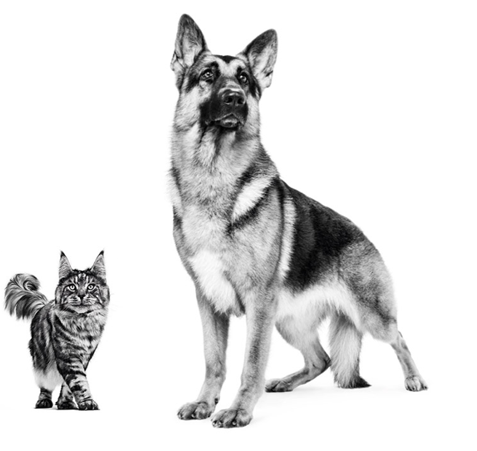
Get access to all handy features included in the IVIS website
- Get unlimited access to books, proceedings and journals.
- Get access to a global catalogue of meetings, on-site and online courses, webinars and educational videos.
- Bookmark your favorite articles in My Library for future reading.
- Save future meetings and courses in My Calendar and My e-Learning.
- Ask authors questions and read what others have to say.
Il comportamento alimentare del cane
Get access to all handy features included in the IVIS website
- Get unlimited access to books, proceedings and journals.
- Get access to a global catalogue of meetings, on-site and online courses, webinars and educational videos.
- Bookmark your favorite articles in My Library for future reading.
- Save future meetings and courses in My Calendar and My e-Learning.
- Ask authors questions and read what others have to say.
Read
Introduzione
Due tendenze sembrano essere diventate di moda tra i proprietari di cani negli ultimi anni:
-
Alimentazione naturale: diete basate sulla composizione di quelle del lupo selvatico, che includono spesso ingredienti crudi.
-
Metodi di addestramento basati sulla dominanza: uso di gestualità di dominanza, come ad esempio l’ordine di alimentazione o la limitazione dei privilegi, al fine di stabilire un controllo basato sull’elevazione a capobranco dello status del proprietario, piuttosto che attraverso il rinforzo dei comportamenti desiderabili usando ricompense alimentari.
Entrambe le tendenze hanno le loro radici nel ritorno popolare a una visione naturalistica dei cani ma condividono la debolezza comune di non tenere in considerazione l’impatto che la presenza dell’uomo ha avuto sui cani domestici e sui lupi. Questo articolo fornisce una panoramica del comportamento alimentare e delle preferenze di lupi e cani e fornisce un’indicazione su come il comprendere meglio questo argomento possa ridurre le malattie e i problemi comportamentali nei cani domestici.
Punti Chiave
-
La dieta dei lupi moderni non va usata come modello assoluto per la composizione delle diete destinate al cane domestico. Piuttosto il comportamento alimentare dei lupi fornisce un’indicazione per i fabbisogni dei cani domestici.
-
I cani sono molto motivati a cercare il cibo e darsi da fare per ottenerlo ma queste esigenze sono raramente soddisfatte nello scenario domestico, il che può causare problemi comportamentali.
-
Il rapporto cane-uomo va stabilito usando l’alimentazione e l’addestramento con ricompense alimentari, piuttosto che i metodi tradizionali basati sui concetti della dominanza.
-
La prevenzione dei problemi comportamentali è strettamente correlata all’uso delle ricompense alimentari durante l’addestramento.
Get access to all handy features included in the IVIS website
- Get unlimited access to books, proceedings and journals.
- Get access to a global catalogue of meetings, on-site and online courses, webinars and educational videos.
- Bookmark your favorite articles in My Library for future reading.
- Save future meetings and courses in My Calendar and My e-Learning.
- Ask authors questions and read what others have to say.
About
How to reference this publication (Harvard system)?
Author(s)
Copyright Statement
© All text and images in this publication are copyright protected and cannot be reproduced or copied in any way.Related Content
Readers also viewed these publications
Subscribe
Access to the content of the Veterinary Focus website is reserved for animal health professionals. If you do not yet have a user account with Royal Canin you can create a free account by selecting the New User form. Subscription to the journal is free and issues in your preferred language can be obtained at the Veterinary Focus website.




Comments (0)
Ask the author
0 comments